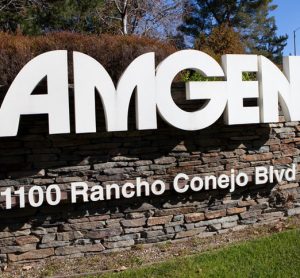U.S. FDA Approves NEXAVAR® (sorafenib) for the treatment of patients with locally recurrent or metastatic, progressive, differentiated thyroid carcinoma refractory to radioactive iodine treatment
Posted: 22 November 2013 | | No comments yet
First and only FDA-approved treatment option for patients with this type of thyroid cancer…


Bayer HealthCare and Onyx Pharmaceuticals, Inc., an Amgen subsidiary (Nasdaq:AMGN), today announced that the U.S. Food and Drug Administration (FDA) has approved a supplemental New Drug Application for the oral multi-kinase inhibitor NEXAVAR® (sorafenib) tablets for the treatment of patients with locally recurrent or metastatic, progressive, differentiated thyroid carcinoma (DTC) refractory to radioactive iodine treatment. NEXAVAR was approved following a priority review by the FDA, a designation reserved for drugs that may offer a significant improvement in treatment over existing options.
“Locally recurrent or metastatic, progressive, differentiated thyroid carcinoma that is refractory to radioactive iodine treatment is difficult to treat,” said Pamela A. Cyrus, M.D., Vice President and Head of U.S. Medical Affairs, Bayer HealthCare Pharmaceuticals. “NEXAVAR is the first and only FDA-approved therapy for this type of thyroid cancer and is a positive development for patients who previously had limited treatment options.”
“We are pleased to be able to offer NEXAVAR as a treatment option for patients with thyroid cancer who are no longer responding to standard therapy,” said Pablo J. Cagnoni, M.D., President, Onyx Pharmaceuticals, Inc. “We are committed to making this treatment available to physicians and their patients as quickly as possible.”
“An unmet medical need exists for this type of thyroid cancer, underscoring the need for new therapies,” said Gary Bloom, Executive Director of ThyCa: Thyroid Cancer Survivors’ Association, Inc. “We are excited that an FDA-approved treatment is now available to patients coping with this challenging type of thyroid cancer.”
DECISION Trial
The FDA approval is based on the results of the DECISION (stuDy of sorafEnib in loCally advanced or metastatIc patientS with radioactive Iodine refractory thyrOid caNcer) trial, an international, multicenter, placebo-controlled study.
“The DECISION trial results show sorafenib’s ability to extend progression-free survival compared to placebo in patients with this type of advanced thyroid cancer,” said Marcia Brose, MD, PhD, assistant professor in the Department of Otorhinolarlyngology: Head and Neck Surgery and the division of Hematology/Oncology in the Abramson Cancer Center, Perelman School of Medicine, University of Pennsylvania. “Physicians now have an approved treatment option that may help improve care in this patient population.”
A total of 417 patients with locally recurrent or metastatic, progressive differentiated thyroid carcinoma refractory to radioactive iodine treatment were randomized to receive 400 mg of oral sorafenib twice daily (207 patients) or matching placebo (210 patients). Metastases were present in 96% of the patients: lungs in 86%, lymph nodes in 51%, and bone in 27%.
Sorafenib significantly extended progression-free survival (PFS), the primary endpoint of the study. The median PFS was 10.8 months (95% CI 9.1-12.9) among patients treated with sorafenib compared to 5.8 months (95% CI 5.3-7.8) among patients receiving placebo (HR=0.59 [95% CI, 0.46, 0.76]; p<0.001). PFS was evaluated by an independent radiological review committee using modified Response Evaluation Criteria in Solid Tumors (mRECIST).
Safety and tolerability were also evaluated. The most common adverse reactions reported for NEXAVAR-treated patients vs. placebo-treated patients in DTC, respectively, were: Palmar-plantar erythrodysesthesia syndrome (PPES) (69% vs. 8%), diarrhea (68% vs. 15%), alopecia (67% vs. 8%), weight loss (49% vs. 14%), fatigue (41% vs. 20%), hypertension (41% vs. 12%), rash (35% vs. 7%), decreased appetite (30% vs. 5%), stomatitis (24% vs. 3%), nausea (21% vs. 12%), pruritus (20% vs. 11%), and abdominal pain (20% vs. 7%). Grade 3/4 adverse reactions were 65% vs. 30%. Drug-related adverse reactions that resulted in treatment discontinuation were reported in 14% of NEXAVAR-treated patients compared to 1.4% of placebo-treated patients.
Related organisations
Amgen, Bayer HealthCare, Food and Drug Administration (FDA), Onyx Pharmaceuticals Inc.



